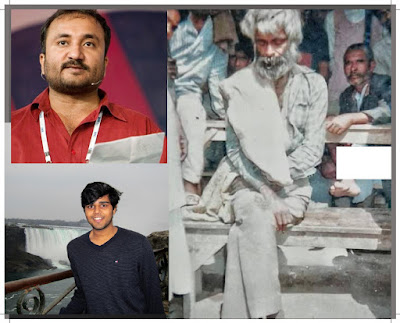Navigating Love, Duty, and Dreams
The news hit Mark like a rogue wave. His father, the anchor of their family, was gone. But amidst the grief, a new responsibility surfaced, heavy and insistent: care for his ailing mother. At 31, with a wife and a future painted in vibrant hues of travel and exploration, Mark found himself tethered to a life he hadn't planned, the weight of filial obligation pressing down on him.
His love for his mother was undeniable, a deep-rooted affection that bloomed from childhood memories and years of shared laughter. Yet, it now came laced with a bitter aftertaste of sacrifice. Every stolen glance at travel brochures felt like a betrayal, every whispered conversation with his wife, a clandestine affair. The world beyond their doorstep, once brimming with possibility, now seemed a distant mirage.
Mark's story isn't unique. It's a familiar echo in societies where the elderly traditionally rely on their children for care, a narrative etched in the lines of countless young adults who find themselves caught in a tug-of-war between love and ambition. The societal pressure to prioritize parental needs, even at the cost of personal aspirations, creates a battleground within, fostering resentment and internal conflict.
But Mark's narrative also challenges a simplistic stereotype. He doesn't reject his love for his mother; he questions the societal expectation that equates love with complete self-abnegation. He highlights the unspoken plight of spouses caught in the crossfire, their dreams and desires relegated to the sidelines. His yearning for a life beyond the confines of caregiving isn't a betrayal of affection, but a testament to the human spirit's yearning for fulfillment.
His sentiment, "This is too early to give in," reverberates with a poignant truth. At 31, he is still building his life, nurturing a marriage, and harboring ambitions that shouldn't be deemed frivolous in the face of parental needs. This begs the question: is there a bridge between filial responsibility and individual aspirations, a space where both can coexist in harmony?
The answer might lie in open, honest communication. Conversations with his mother, not laced with guilt or obligation, but with empathy and a shared desire for solutions. Exploring alternative care options, like assisted living facilities or in-home care services, can alleviate the burden while ensuring his mother's well-being. Reframing the narrative, emphasizing shared responsibility and collaborative solutions, can foster a sense of agency for both Mark and his mother.
But the solution isn't just individual; it's societal. Mark's story is a call for introspection, a plea to move beyond rigid expectations and create a support system that empowers both the caregiver and the cared-for.
Mark's internal struggle wasn't just born from societal norms; it festered in the fertile ground of familial expectations. The air around him thrummed with unspoken, yet potent, messages: "You are the eldest son, the hope of the family." "Your father built this, now it's your turn to carry the torch." These invisible pronouncements, whispered from years of tradition and ingrained cultural values, painted him as the "perfect son," destined to bear the weight of responsibility without complaint.
Mark's father, a revered figure within the family, had cast a long shadow. His success, his sacrifices, were held up as a benchmark, an unspoken challenge for Mark to replicate. Deviation from this preordained path, a yearning for a life beyond fulfilling familial obligations, was seen as a betrayal, a blemish on the legacy he was expected to uphold.
The expectation went beyond mere success. It demanded selflessness, a willingness to put his own needs on hold for the sake of the family. The unspoken belief: a "perfect son" doesn't prioritize his own happiness, his dreams, his desires. His life becomes an extension of the family's well-being, a vessel to carry their hopes and aspirations.
In this narrative, Mark's wife becomes collateral damage. Her dreams, her aspirations, are relegated to the margins, deemed secondary to the "greater good" of the family. The societal expectation often positions her as a silent supporter, expected to provide unwavering emotional strength while sacrificing her own desires.
This image of the "perfect son" is, ultimately, untenable. It ignores the complexities of human emotions, the need for individual fulfillment, and the evolving dynamics of modern families. It creates a pressure cooker of guilt, resentment, and unfulfilled dreams, threatening to implode under the weight of unrealistic expectations.
The path forward lies in open communication, not just within the family, but also with society at large. Mark needs to have honest conversations with his mother, expressing his love and concern while also asserting his need for personal growth and fulfillment. He and his wife need to create a united front, advocating for solutions that respect both their individual needs and their familial responsibilities.
Mark's story is a spark that can ignite a conversation, a tapestry woven from love, duty, and the human desire for fulfillment. By sharing his experience, he reminds us that we are not alone. By advocating for change, he paves the way for a future where love and duty don't have to come at the cost of individual dreams. The answer lies not in choosing one over the other, but in finding a path where both can flourish, hand in hand. Let Mark's story be a catalyst for a more compassionate, supportive society, one where love and dreams can co-exist in beautiful harmony.




Comments
Post a Comment